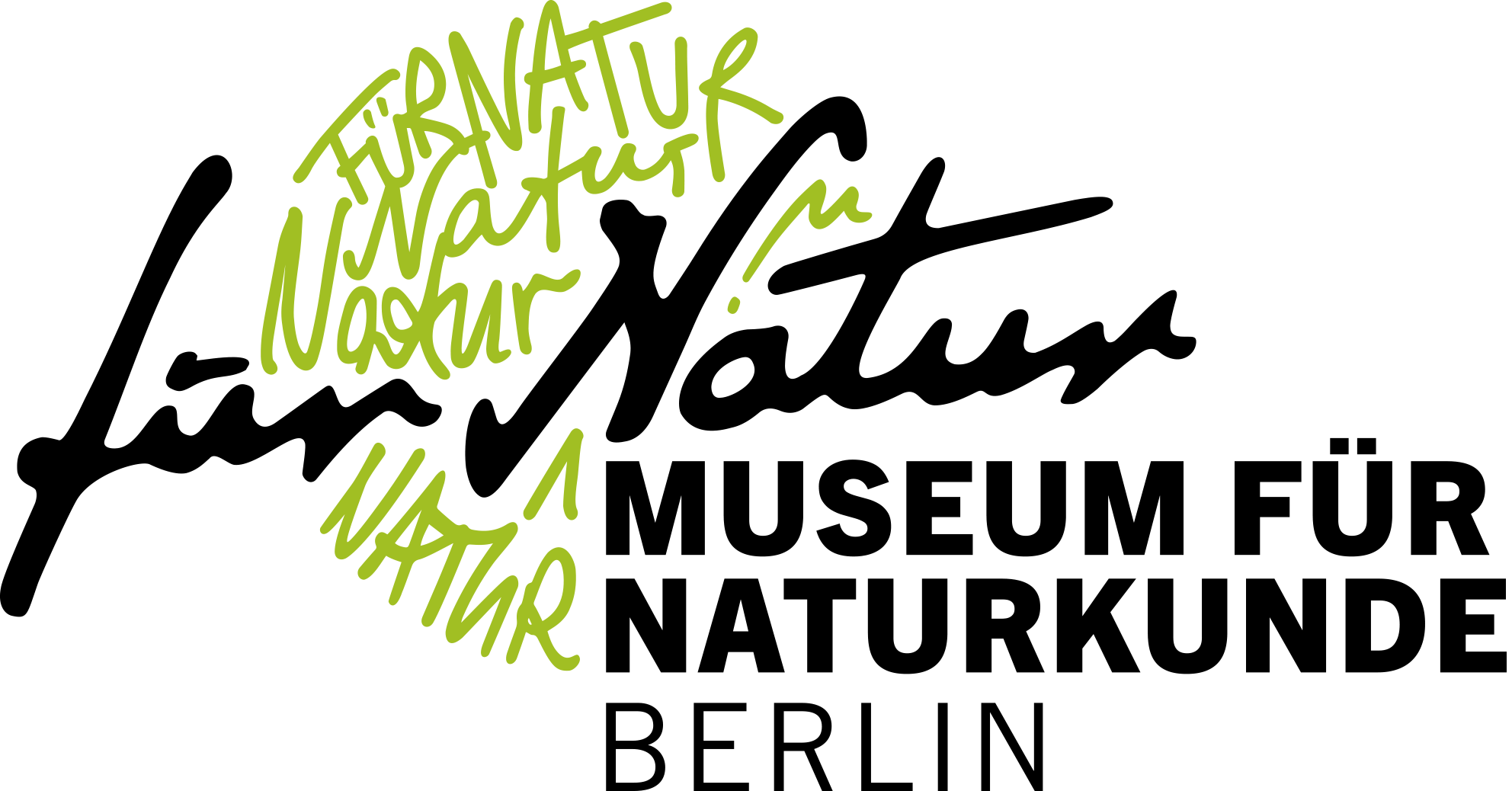
Vacancy
Our Mission: Discovering and describing life and earth - with people, through dialogue.
The Museum für Naturkunde Berlin (MfN) is an excellent and integrated research museum of the Leibniz Association with an international reputation and globally networked research infrastructure. It is active in three closely interlinked fields: collection-based research, collection development and cataloguing, and research-based public and educational work. Over the next ten years, the Museum für Naturkunde will realise its plan for the future. New laboratories and jobs for cutting-edge research will be created. At the same time, one of the world's most comprehensive natural history collections with over 30 million objects will be housed in modern collection buildings and completely digitised in the process. The implementation of the Future Plan, funded with a total of 660 million euros from the Federal Government and the State of Berlin, will only succeed with strong interdisciplinary national and international partners.
Become part of our team as
| Position: | PhD student (f/m/d) |
| Work schedule: | 65 % of the regular weekly working hours (currently 25 hours and 37 minutes) |
| Duration: | at the earliest possible date, for the duration of 36 month |
| Salary Level: | E 13 TV-L |
| Code: | 14/2025 |
Project Description
New Guinea is the largest tropical island in the world and well-known for its unique tropical biodiversity. However, with a large mountain range that includes peaks over 4,500 meters, the corresponding elevational gradient has played an important role in the diversification of New Guinean flora and fauna. Previously, we have generated whole-genome resequence data and denovo reference genomes for 13 New Guinean bird species to study population connectivity across mountain ranges and many of these samples were sourced from Natural History Collections due to the difficulty of conducting fieldwork in this remote region. In this PhD project, we will expand on this dataset, use long-read sequencing to assemble new genomes and employ a comparative approach to investigate whether species adapted to distinct climatic environments consistently differ in demographic history due to past climate change. Moreover, we will focus on a few key species groups (e.g. Birds-of-Paradise) and characterize hybridization dynamics along altitudinal gradients. This research is embedded within the BirdMORE project and funded by the Leibniz Junior Research Group program. The overarching theme of BirdMORE is to further unlock the potential of Natural History Collections to study population and genomic change.
Your tasks
- The study of demographic history in bird populations from New Guinea using museomic data
- Assembling high-quality reference genomes and generating whole-genome resequencing data of avian skins
- Inference of evolutionary history using Ancestral Recombination Graphs
- Comparative analysis of demographic trajectories between high- and low-altitude species
- Presentation of scientific results at international conferences
- Publication of peer reviewed papers in high-ranking international scientific journals
Your profile
- University degree (Master of Science or equivalent degree) in biological sciences or information technology
- Experience with population genomic and population genetic research
- Deep understanding of Evolutionary Biology
- Experience or interest in learning lab work (e.g. DNA extractions and library preparations)
- Research experience with genomic data
- Research experience with various demographic models (e.g. msprime, ABC or RELATE)
- Research experience in the denovo assembly and scaffolding of high-quality genomes using PacBio and Hi-C data
- Familiar with R, Python or other coding languages
- Experience with HPC clusters and Job Schedulers (e.g. SLURM)
- Interdisciplinary communication skills and intercultural competence
- Knowledge and experience in the publication and communication of scientific results
- Excellent knowledge of English (spoken and written)
We offer you
- exciting working environment in an attractive research museum with varied tasks in a dynamic and future-orientated market
- very good public transport connections in the centre of Berlin
- extensive further training opportunities on a personal and professional level
- flexible working hours and a wide range of options for balancing work and family life (e.g. flexi-time or individual part-time models)
- depending on the job, mobile working is possible for up to 60 per cent of individual working hours
- remuneration according to TV-L with company pension scheme (VBL), special annual payment and capital-forming benefits
- employee events, company health management and German and English language courses
- 30 days' holiday plus 24 December and 31 December off
Special Notes
In support of equal rights applications from qualified women are particularly welcome. Handicapped individuals will be given preference in cases of identical qualifications.
We look forward to receiving your application with the usual documents (cover letter, curriculum vitae, certificates) by 11.06.2025, preferably via our online application portal.
For information on the application procedure, please contact recruiting@mfn.berlin.
Further information
Privacy Policy
By sending your application, you provide us with your information for the purpose of processing your application by the Museum für Naturkunde. Your data will be kept strictly confidential at all times. Once we have received your application documents, they will be entered into our database. Your data will be stored on our server. In doing so, we observe the provisions of the data protection laws.
Information about the handling of applicant data at the MfN (in German)
and
Privacy policy for the MfN website (in German)

The Museum für Naturkunde has set itself the goal of promoting a work-life balance and has been awarded the certificate berufundfamilie audit of berufundfamilie gGmbH - an initiative of the Hertie Foundation. Further information can be found under: https://www.museumfuernaturkunde.berlin/en/uber-uns/jobs-und-karriere/arbeiten-am-museum-fur-naturkunde/reconciling-work-and-family-life-audit